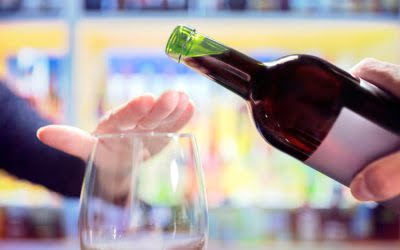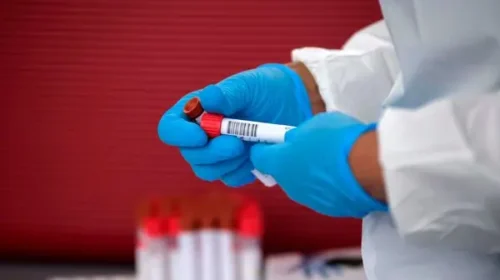Content
In the past, a person with this condition was referred to as an “alcoholic.” However, this is increasingly seen as an unhelpful and negative label. Health professionals now say that a person has an alcohol use disorder (AUD). The two manuals use similar but not identical nomenclature to classify alcohol problems. At this stage, drinking becomes everything in your life, even at the expense of your livelihood, your health and your relationships. Attempts to stop drinking can result in tremors or hallucinations, but therapy, detox, and rehab can help you get your life back. At this point, it’s obvious to those close to you that you’re struggling.

A heavy drinking binge may even cause a life-threatening coma or death. This is of particular concern when you’re taking certain medications that also depress the brain’s function. The most severe form of alcohol withdrawal is delirium tremens (DTs), characterized by altered mental status and severe autonomic hyperactivity that may lead to cardiovascular collapse. Only about 5 percent of patients with alcohol withdrawal progress to DTs, but about 5 percent of these patients die. Heavy alcohol consumption has been linked to more than 60 different diseases.
Impact on your health
The ability to plan ahead, learn and hold information (like a phone number or shopping list), withhold responses as needed, and work with spatial information (such as using a map) can be affected. Brain structures can shift as well, particularly in the frontal lobes, which are key for planning, making decisions, and regulating emotions. But many people in recovery show improvements in memory and concentration, even within the first month of sobriety.
- An intervention from loved ones can help some people recognize and accept that they need professional help.
- Several evidence-based treatment approaches are available for AUD.
- Alcoholics Anonymous is available almost everywhere and provides a place to openly and non-judgmentally discuss alcohol problems with others who have alcohol use disorder.
- Those problems could include depression, an inability to manage stress, an unresolved trauma from your childhood, or any number of mental health issues.
Binge drinking can have many of the same long-term effects on your health, relationships, and finances as other types of problem drinking. Binge drinking can lead to reckless behavior such as violence, having unprotected sex, and driving under the influence. Binge drinking can also lead to alcohol poisoning, a serious and sometimes deadly condition. For many, beer, wine, and spirits conjure up thoughts of social gatherings and tipsy fun.
Is Alcoholism Hereditary?
Just because someone may appear to be “sleeping it off,” they can still be in danger of serious harm from alcohol poisoning. Call 911 immediately if you suspect someone may be in danger of an alcohol overdose. The National Council on Alcoholism and Drug Dependence and AlcoholScreening.org offer more comprehensive self-tests. The American Psychological Association gratefully acknowledge the assistance of Peter E. Nathan, PhD, John Wallace, PhD, Joan Zweben, PhD, and A.
The later stages of addiction can yield physical changes, but behavioral signs can help detect it early on. People with an addiction often develop rigid routines that revolve around uninterrupted access to alcohol and other drugs; they may be irritated by schedule changes and blame their frustration on others. They may have powerful mood swings that seem to change their personality. Relationships may deteriorate, as their social circle narrows to other drug or alcohol users.
The effects of alcohol abuse on the people you love
Even though alcohol abuse is a serious condition with potentially dire consequences, it is treatable. If you or someone you love has a problem, seek the help and advice of a health care professional as early as possible. Not all alcohol abusers become full-blown alcoholics, but it is a big risk factor. Sometimes alcoholism develops suddenly in response to a stressful change, such as a breakup, retirement, or another loss. Other times, it gradually creeps up on you as your tolerance to alcohol increases.
Another way to look at your drinking habits is to think about how much you have during an average week. For women, “heavy” or “at risk” drinking means more than seven drinks per week or more than three in any day. For men, it’s more than 14 drinks in a week or more than four in a day.
sober house, excessive and repetitive drinking of alcoholic beverages to the extent that the drinker repeatedly is harmed or harms others. The harm may be physical or mental; it may also be social, legal, or economic. Because such use is usually considered to be compulsive and under markedly diminished voluntary control, alcoholism is considered by a majority of, but not all, clinicians as an addiction and a disease. If you or a loved one is ready to overcome an alcohol addiction, it’s time to seek help.
If you buy through links on this page, we may earn a small commission Here’s our process. The CAGE questionnaire, named for its four questions, is one such example that may be used to screen patients quickly in a doctor’s office.
Addiction and Mental Health Resources
With so many effects on the body, the usual first step in treating alcoholism is detox—or getting alcohol out of your system. Depending on the severity of the alcohol use disorder, this stage can be mildly annoying or severe. Early withdrawal symptoms include headaches, anxiety, nausea, irritability and shaking. It’s a range that includes alcohol abuse, which is when drinking has serious consequences again and again. It also includes alcohol dependence or alcoholism, which is when you’ve lost control of your drinking. According to Vaillant’s research, inner-city men began problem drinking approximately 10 years earlier than college graduates (age 25–30 y vs age 40–45 y).
Which drink is most alcoholic?
- Polmos Spirytus Rektyfikowany Vodka. Proof: 192 (96% alcohol by volume)
- Everclear 190. Proof: 190 (95% alcohol by volume)
- Golden Grain 190.
- Hapsburg Absinthe XC.
- Balkan 176 Vodka.
- Sunset Very Strong Rum.
- Stroh 160 Rum.
- Devil's Springs Vodka 160.










